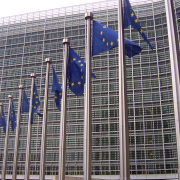French health and environment agency ANSES said on last Monday it was banning 36 products containing herbicide glyphosate and refusing applications to launch another four glyphosate products due to insufficient data on health risks.
The products would no longer be authorised for use after end-2020, it said in a statement.
The products accounted for nearly three-quarters of the volume of glyphosate products sold in France in 2018, it said.
Glyphosate, first developed by Bayer’s Monsanto unit under the brand Roundup, has been a focus of controversy since a World Health Organisation agency concluded in 2015 that it probably causes cancer. Bayer denies the charge.
Bayer is facing potentially costly lawsuits in the United States and politicians in the European Union have been debating outright bans of the weedkiller.
Austria, which is attempting to be the first European country to ban all uses of the weedkiller, said that a law on the ban cannot go into force on Jan. 1 as planned because the European Commission was not properly notified.
In 2017, French President Emmanuel Macron pledged to end glyphosate use in France within three years, like Austria going beyond an EU decision to extend its use for five years.
However, Macron’s government stopped short of legislating to outlaw glyphosate, setting instead a target to phase out its use by 2021 except where no viable alternatives existed.
ANSES said it had been reviewing the 69 glyphosate products available in France as well as 11 applications to market new products.
“ANSES has decided that 36 of these products will be withdrawn from the market and will no longer be allowed for use from the end of 2020, due to a lack or absence of scientific data which would allow all genotoxical risk to be ruled out,” the agency said.
The list of products to be withdrawn included several versions of Roundup along with certain other Bayer-owned products, plus other brands sold by around a dozen other manufacturers.
Glyphosate is off-patent and marketed worldwide by a large number of other crop chemical groups in addition to Bayer.
Bayer said in an emailed statement it would comply with ANSES’ decision but planned to provide additional data to the agency as a way of “working towards renewing the marketing authorizations for our glyphosate-based products in France”.
ANSES said it would complete its review of glyphosate products by the end of next year, and that only products that met EU criteria and which did not have adequate alternatives would be allowed to be sold in France.
Germany will ban the substance from the end of 2023.
Source: Agropages

